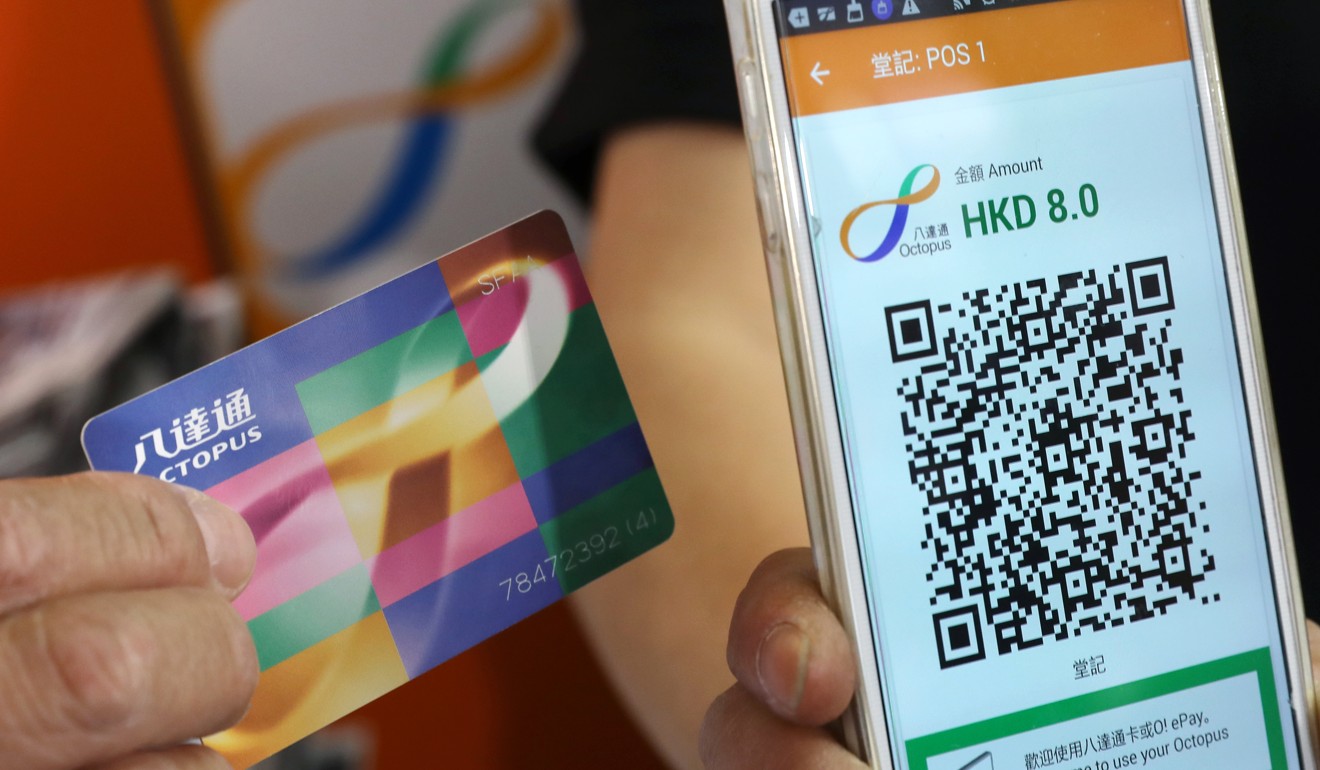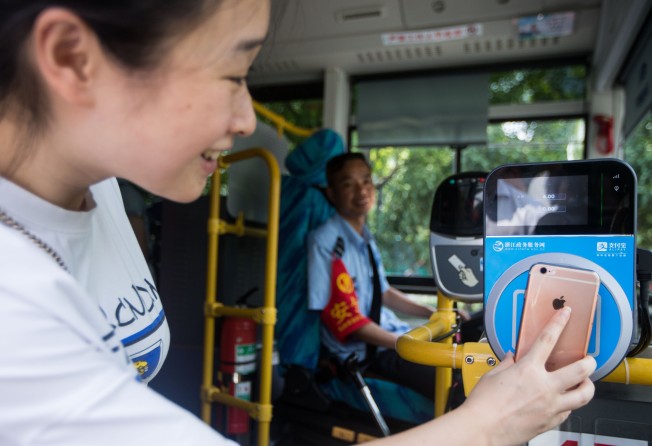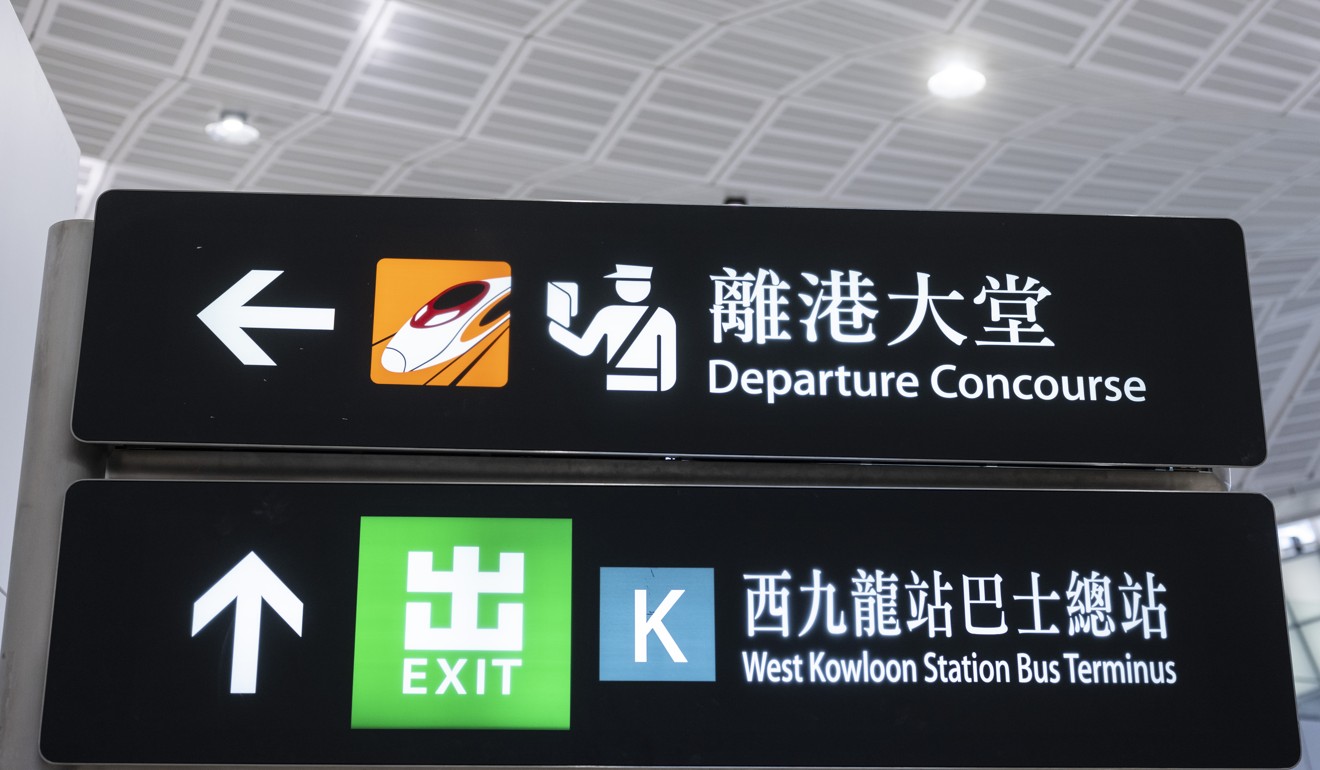
Octopus’ transport payment monopoly under threat? – 8 in 10 passengers would pay by e-wallet or QR code if they had the option, claims Visa
Ubiquitous card is currently the only major form of cashless payment format offered for the MTR, trains, buses, tram and ferry services in Hong Kong – but all that could be about to change

Eight out of every 10 public transport users in Hong Kong would use electronic payment systems such as Alipay, WeChat Pay, contactless credit cards or quick response (QR) codes if they could, according to a new survey released on Tuesday.
The findings, by card payment service Visa, suggest that Octopus cards – which have a monopoly on contactless payments for public transport in the city – could now be under threat from a plethora of new arrivals, most of which are smartphone based.
Hong Kong Monetary Authority (HKMA) launched its largest ever reform of payment methods on Monday.
Hong Kong customers of Alipay and WeChat Pay, the two dominant cashless payment operators in mainland China, will be able to transfer funds from each other for the first time, through HKMA’s new Faster Payment System.

The service will be available from September 30, with customers of 10 e-wallet operators as well as 21 banks – including HSBC, Hang Seng Bank, Citibank, Standard Chartered Bank, Bank of East Asia and Bank of China Hong Kong – now able to register for the service.
This will pave the way for the city’s public transport firms to also accept these new form of cashless payment, said HKMA officials.
The MTR, on its official website in June, invited technology company to tender to create a system to allow its customers to access swift QR codes via smartphone to pay for trips.
Octopus is currently the only major form of cashless payment format offered for the MTR, trains, buses, tram and ferry services in Hong Kong, while some customers still pay by cash.
Octopus, Alipay and WeChat Pay are among the 10 operators to join the HKMA’s new system.
The Visa study – which polled 1,019 respondents in Hong Kong between August 24 and 27 – shows 86 per cent said they would shift to new methods to pay, if they were offered benefits such as cash rebates or loyalty reward points, such as Asia Miles.

E-wallets appear to have gained huge popularity already, with 44 per cent of respondents saying they use these apps installed on smartphone to pay for transport. The second most popular choice was contactless credit cards (40pc), while 15 per cent of passengers would choose QR codes.
“Given Hong Kong’s mature financial services sector, commuters expect more than just fast, secure and convenient method of payment at transport gates,” said Paul Jung, head of Visa products for north Asia.
“The study shows they want to be able to earn reward points, cashback and even mileage when paying for subway and bus rides.”
Despite its prominent position in regional and global finance, Hong Kong ranked fifth in Asia-Pacific in the use of contactless payments via mobile device. 43 per cent of face-to-face Visa transactions in Hong Kong are contactless, according to its findings.
Jung said by implementing an open-payment ecosystem for its public transport network to accept different types of mobile payment systems, Hong Kong would follow the lead of other international cities such as London, New York, Sydney and Vancouver.
“A transit system, where all standardised payment methods are accepted, could help boost the experience of millions of daily commuters and travellers visiting Hong Kong,” Jung added.
In London, which has an 8.8 million population, more than two billion journeys have been paid for by contactless cards and mobile devices since 2012, representing an average 17 million trips a week, his figures show.
According to Transport for London, such transactions take less than 500 milliseconds (0.5 seconds) to complete.